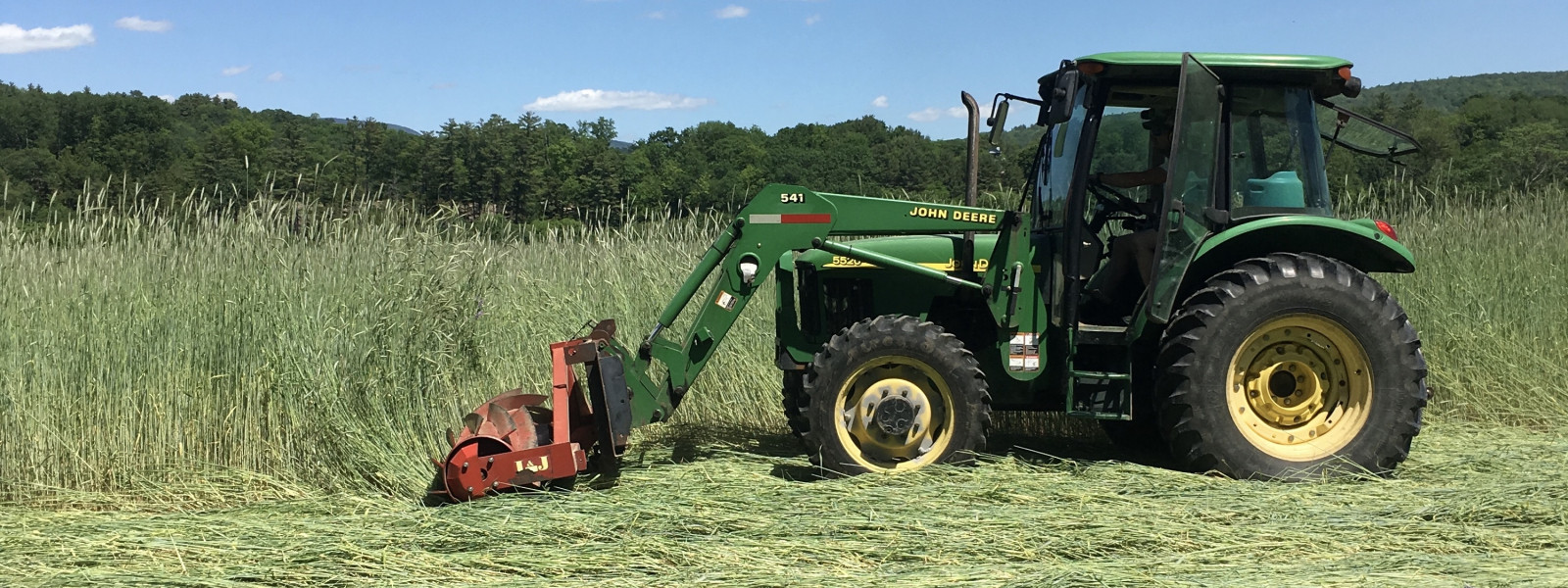Help the FDA Understand What Safe Food Really Is.
At Cedar Circle Farm we take food safety very seriously and are leading the way among farms our size in developing systems and practices which meet or exceed the GAP standards. Food safety has to do with what inputs go in to a farm and how those resources are managed, how crops are handled from seed to plate, and careful consideration of working conditions for farmers. For us, it all starts with being certified organic.
We all know that Big Ag is the real problem when it comes to food safety issues like food born illness. Yet, the FDA’s answer was to create legislation that will drive small farms out and protect Big Ag. The FSMA (Food Safety Modernization Act) is a threat to small farms and locally produced foods everywhere.
As currently written, the rules will:
- put many farms out of business;
- reduce the supply of fresh, local produce in schools and hospitals;
- push farmers to tear out wildlife habitat; and
- increase the use of chemicals rather than natural fertilizers.
The FDA needs to hear from you about the FSMA.
Every comment makes a difference. Unique comments mean the most.
Comment period ends Friday, Nov 15.
Deadline extended to Friday, November 22.
Lend your voice to this very important issue
1) Comment online: by November 22, 2013
Go here to comment as a consumer
Go here to comment as a producer
2) Snail-mail your comment must be post-marked by November 22, 2013
Division of Dockets Management (HFA-305)
Food and Drug Administration
5630 Fishers Lane, Room 1061
Rockville, MD 20852
3) Sign the petition The Organic Consumers Association is an effective advocacy organization which Cedar Circle Farm supports. Sign their petition to the FDA by November 22, 2013.
Here is a sample comment:
Food safety is an extremely important issue and must be addressed for large-scale farms. Big Ag, not small farms, are responsible for increased food borne illness. Small farms, especially those that are certified organic and already adhere to strict regulations, are not the problem, in fact they are the solution to providing safe food. I won’t eat, nor will I feed my family, food from industrial sized farms. I do not trust their practices for safety of humans or the natural environment.
The farmers I purchase food from are honest, hard-working, and take great great pride in the food they produce and in their healthy communities. The vegetable and berry farm I work for, takes great measures to not only produce high-quality produce, they also leave behind soil that is healthier than when they started, contribute to increased health in biodiversity above and below the ground, and take special care to exceed the GAP standards for processing produce.
The FSMA threatens to prevent us from doing the great work we do. I refuse to eat the food produced on industrial farms. Their greatest interest is in shareholder profit, not in my health, and certainly not in the health of the environment they leave behind for future generations.
Please revise the FSMA to include protections for the many small farms who actually do produce healthy and clean food. Please do not drive us out of business with pricy and laborious regulations designed for industrial farms.
Specifically, the FSMA should revise the regulations to address the following:
- Do not exceed the strict standards for the use of manure and compost used in certified organic production and regulated by the National Organic Program.
- Clarify two key definitions: first, as Congress required, FDA must affirm that farmers markets, CSAs, roadside stands, and other direct-to-consumer vendors fall under the definition of a “retail food establishment” and are therefore not facilities subject to additional regulation. Second, FDA should adopt at least the $1,000,000 threshold for a very small business and base it on the value of ‘regulated product,’ not ‘all food,’ to ensure smaller farms and businesses (like food hubs) fall under the scale-appropriate requirements and aren’t subject to high cost, industrial-scale regulation.
- Clearly define the “material conditions” that lead to a withdrawal of a farmer’s protected status in scientifically measurable terms. FDA must also outline a clear, fair, process for justifying the withdrawal of a farmer’s protected status and for how a farmer can regain that status.
Sincerely, Cat Buxton
More on the FSMA
For an overview of the Food Safety Modernization Act visit the National Sustainable Agriculture Coalition website.
This Issue Is Important to the Upper Valley
- In August of 2013, at the height of the farming season, farmers and food advocates from all over the Upper Valley packed an FDA hearing held in Hanover, New Hampshire.
- In a Valley News article covering the hearing, farmers from NH and VT were quoted as they raised significant problems with the FSMA proposed rules. Will Allen, Cedar Circle Farm’s co-manager, questioned the numbers provided by the FDA estimating the number of food-borne illnesses each year. “The real issue is that you don’t have good numbers to start with and you don’t have any numbers about what the states are really doing or causing in terms of food-borne illness,” Allen said. “What, for example, is the incidence of food-borne illness on small farms in Vermont, or New Hampshire, or Massachusetts? Do you even know that?”. Read the whole Valley News article.
- Rosemary Fifeld of the Coop Food Stores in Hanover, NH wrote this piece, Could We Lose Our Local Farms to FSMA in August, 2013.







